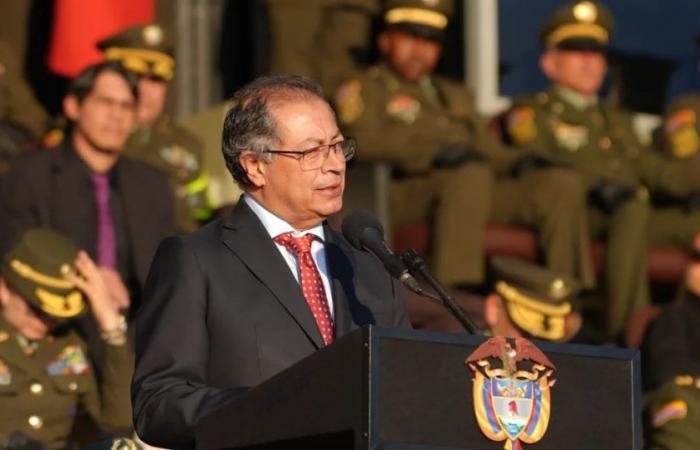In a key meeting for the implementation of the Peace Agreement between the Colombian State and the FARC, President Gustavo Petro met at the Casa de Nariño with the ambassadors of the United Kingdom and Cuba, the ambassador in charge of Norway and the chancellor in charge, Paola Vazquez.
During the meeting, the main topics revolved around agrarian reform, territorial transformation and judicial truth, essential aspects for the consolidation of peace in Colombia.
You can now follow us on our WhatsApp Channel and in Facebook.
The Casa de Nariño emphasized that these discussions are vital to overcome the armed conflict in the country. President Gustavo Petro and foreign diplomats They agreed on the importance of “the active participation and support of the international community.”
The issue of agrarian reform was one of the central points of the meeting. This aspect is crucial for the redistribution of land and the inclusion of rural communities in the economic development of the country. Petro and the ambassadors considered that the transformation of the territory is not only a matter of social justice, but also of long-term sustainable development. “These issues were addressed as fundamental elements to consolidate peace,” stated the Casa de Nariño.
Territorial transformation was highlighted as an essential strategy for building a post-conflict Colombia where priority is given to the development of infrastructure and services in regions historically affected by the conflict. This process will include improving access to basic services and creating economic opportunities for the most vulnerable communities.

Judicial truth was also on the agenda of the meeting, with a focus on ensuring accountability and justice for victims of the armed conflict. This point is significant for national reconciliation and to ensure that atrocities committed during the conflict do not go unpunished. The ambassadors highlighted the importance of effective judicial truth as a path to lasting peace and the restoration of the social fabric in Colombia.
This meeting is another link in the chain of international efforts to support peace in Colombia. Cooperation between the country and its international allies continues to be an essential pillar to guarantee the effective implementation of the peace agreement signed in 2016 with the FARC. President Gustavo Petro and the ambassadors invited the international community to remain vigilant and committed to the progress of the peace process.
The Casa de Nariño said the meeting concluded with a consensus on the need to strengthen international cooperation and secure resources for the implementation of the agreements. This meeting demonstrates the importance of constant and solid support from the international community to achieve stable and lasting peace in Colombia.
After the signing of the peace agreement in 2016 between the Colombian State and the extinct FARC, the country has faced a significant challenge in the implementation of the established commitments. Despite continuous efforts, numerous obstacles have arisen in its execution, according to various reports and official statements.
President Gustavo Petro, who has assumed responsibility for advancing the implementation of the agreement, proposed the Total Peace policy, which seeks to negotiate with illegal armed groups and turn the search for peace into a state policy.
A report by the UNDP (United Nations Development Programme), based on 12,000 surveys, assesses the perception of peace in PDET municipalities (Territorial Development Programmes). The report highlights the different visions of peace and the persistent challenges in issues such as transitional justice. According to the report, “security conditions in PNIS (National Comprehensive Program for the Substitution of Illicit Crops) municipalities remain a major concern.”a reflection of the numerous murders of leaders and human rights defenders.

Access to land has been a stated priority of the current government, although the need to accelerate land formalization is recognized to achieve tangible progress. Petro has noted that “land is essential to building lasting peace”, underscoring the urgency of addressing this critical issue.
The execution of resources in key entities for the implementation of the agreement has been described as low. Furthermore, security for ex-combatants and social leaders remains a persistent challenge.
The Pnis has also faced significant difficulties. Victim compensation and collective reparation are areas that still need greater attention and effective action. The government has raised the need to increase and execute the resources allocated for these programs to ensure their long-term success.


